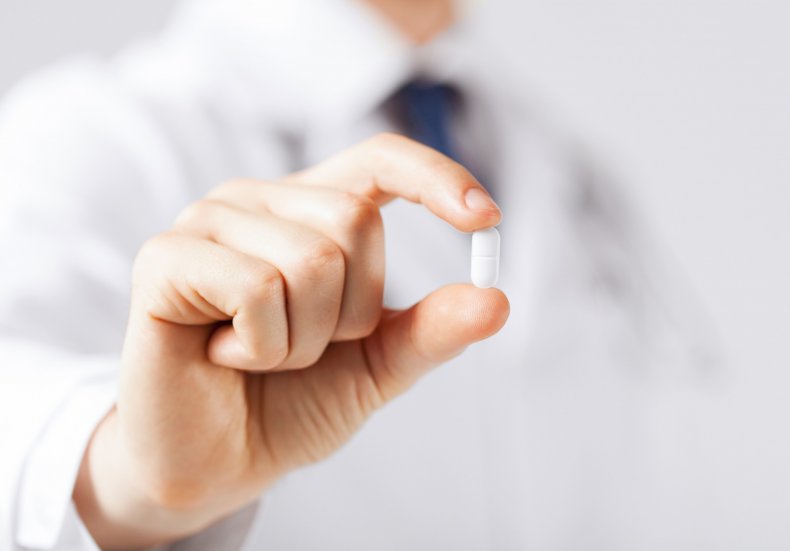Merck and Pfizer COVID Pills Compared As Paxlovid Appears to Cut Deaths
Pfizer has announced that its upcoming COVID drug, Paxlovid, seems to reduce the risk of hospitalization and death based on preliminary analysis of an ongoing study of its effectiveness.
Paxlovid, also known as PF-07321332, is an oral pill used to treat COVID patients as soon as they are aware they have been exposed to the virus or at the first sign of infection.
Pfizer hopes it will prevent patients from getting seriously ill or dying with the disease, SARS-CoV-2, the virus that continues to infect hundreds of thousands of people around the world every single day.
The announcement comes just a day after the U.K. approved the use of another COVID-19 treatment pill by U.S. pharma companies Ridgeback and Merck. That pill is known in the U.K. as Lagevrio, but it is generally known as molnupiravir.
Both Paxlovid and molnupiravir are virus inhibitors, meaning they act to prevent the COVID virus from reproducing in the body. They are both taken orally and are designed to be given to COVID patients.
Paxlovid works by blocking the activity of a certain COVID enzyme called SARS-CoV-2-3CL, according to Pfizer. The COVID virus needs this enzyme in order to replicate.
Molnupiravir works by merging itself with the COVID virus and causing errors in its genetic code, preventing it from replicating.
Pfizer is currently working on multiple studies to investigate the safety and effectiveness of Paxlovid. The so-called EPIC studies, which stand for Evaluation of Protease Inhibition for Covid-19, are split into different types.
There is EPIC-SR, which looks at standard-risk patients with a confirmed COVID infection; EPIC-PEP, which looks at healthy adults who live in the same household as someone with COVID; and EPIC-HR, which looks at non-hospitalized high-risk patients with a confirmed COVID infection.
Pfizer's announcement on Friday follows early analysis of the ongoing EPIC-HR study involving data from hundreds of adults who were enrolled by September 29. Each patient in the study was randomized to receive Paxlovid or a placebo orally every 12 hours for five days within three days of symptom onset.
The data from the study so far looked at patients 28 days after they were randomized. In the Paxlovid group, in which there were 389 people, three ended up being hospitalized and none of them died.
In the placebo group, in which there were 385 people, 27 ended up being hospitalized and seven died.
The U.K.'s authorization of molnupiravir followed preliminary analysis of an ongoing Phase 3 clinical trial called MOVe-OUT, in which 800 mg of the drug was given twice daily to non-hospitalized, unvaccinated adult patients with mild-to-moderate COVID-19 infections.
Like the Pfizer study, Merck and Ridgeback reported an apparent decrease in the risk of hospitalization and death in people who had received their drug.
The companies said that through day 29 following randomization, 28 patients were hospitalized or died out of 385 who received molnupiravir, and 53 patients were hospitalized or died out of 377 patients who had received a placebo.
In addition, no deaths were reported in the molnupiravir group up to that time, compared to eight deaths in the placebo group.
Study participants had to have had COVID-19 with symptom onset within five days of randomization and at least one risk factor associated with poor disease outcome.
